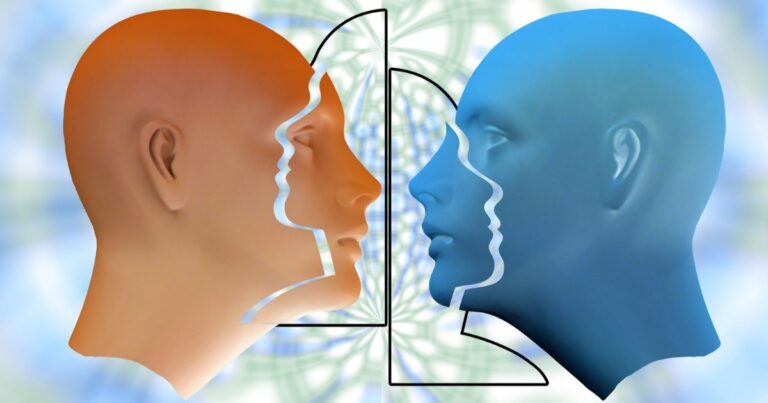The rights are the freedoms and guarantees of citizens. These rights, generally, must be ensured by the State.
The obligations are the commitments or responsibilities that citizens acquire in the exercise of their rights. This means that there are no rights without responsibilities, and vice versa.
Rights and obligations are a set of rules created to promote social coexistence and relations between citizens and institutions. The difference between rights and obligations is that rights must be guaranteed by the State to its citizens, while obligations provide for the responsibilities of citizens towards the State and the laws.
| Rights | Obligations | |
|---|---|---|
| Definition | They are provisions that allow citizens to have citizen participation, by means of assured principles, rights, freedoms and guarantees. | They are the responsibilities that citizens have with the State. |
| Types |
|
|
| Legal instruments |
|
|
| Examples |
|
|
What are the rights
Rights are the provisions or guarantees that people have in order to enjoy a series of freedoms provided by the State.
The rights of citizens are established in the constitution of each country and, therefore, may vary.
However, a fundamental international instrument for the definition of these rights is the Universal Declaration of Human Rights, a series of universal postulates established by the United Nations in 1948.
The following are the most important rights:
Right to life
All citizens have the right to life, and this right will materialize in different ways depending on the laws of each country. However, in general terms, States are obliged to provide all the necessary mechanisms to ensure that this right is protected.
Some of these mechanisms are:
- Legal mechanisms.
- Protection against diseases through public health mechanisms.
- Medical care for pregnant women.
- Social measures for the protection of people in vulnerable situations.
2. Right to freedom of expression
Everyone has the right to express his or her opinions and ideas freely. The exercise of this right may not infringe on the rights of other individuals, through defamation or exposure of their private life.
In countries with authoritarian regimes this right is not only not fulfilled, but citizens are coerced to avoid expressing their ideas freely.
3. Right to free association
Every citizen has the right to associate freely with third parties, as long as it is done legally, respecting the rules established by each country for these cases.
This right is especially useful in economic activities, since it can generate a positive impact on the local, regional or global economy, directly or indirectly benefiting other people.
4. Right to education
All persons have the right to have access to the educational system and the State must provide the relevant means to achieve this.
This right is expressed in the incorporation of citizens to free and compulsory primary education, accessible secondary education and equitable higher education.
5. Right to health
Through this right, States guarantee a free, quality public health system to which citizens can have access without discrimination.
The right to health should be preventive in nature in the first instance; this helps to guarantee better living conditions and a lower incidence of disease in the population.
6. Right to vote
Caretakers have the right to universal and secret suffrage to choose their rulers, whether at the local or national level.
However, this right remains limited for many women in various countries around the world, which represents a major challenge for social evolution.
7. Right to freedom of movement
Any person has the right to move freely in the territory of which they are citizens, being able to move to other territories, as long as they comply with the laws in force in the destination countries.
Each State is free to establish mechanisms to limit free transit in situations that require it (disturbance of public order, natural disasters, etc.).
8. Right to work
States should promote measures that stimulate the activation of the economy through job creation.
Measures that serve as protection for workers, that guarantee their access to the economic system through employment and a fair treatment that allows the performance of their work and their contribution to society.
9. Right to housing
Everyone has the right to decent housing that provides the basic conditions for personal development.
States must guarantee this right through measures that enable citizens to have access to housing, whether through public, private or mixed initiatives (social housing, microcredits, etc.).
10. Right to private property
Citizens have the right to acquire property in their own name, either as natural or juridical persons, as long as this is done within the legal framework of each country.
What are obligations
Obligations are a series of responsibilities that must be respected by citizens, and failure to comply with them may result in legal sanctions.
As with rights, citizen obligations vary according to the constitution of each country; however, these are some of the most common in many current legislations:
11. Defend the constitution and laws
All citizens must respect and defend the constitution of their country and contribute to social coexistence by abiding by the corresponding laws.
12. To defend the territory in case of armed conflict.
In some countries, military service is mandatory. Also citizen participation in cases in which military actions are required, such as aggressions to the sovereignty or national territory, prior call of the corresponding authorities.
13. To render civilian service
This obligation refers to the participation of citizens in civil or military activities in the event of natural disasters or situations of social upheaval.
14. Paying taxes
The payment of taxes by citizens serves to finance public spending, which is why in many legislations it is an obligation whose non-compliance is severely punished.
In order to pay taxes, each country establishes its own requirements, but generally one must be of legal age, carry out an economic activity and generate a minimum monthly or annual income.
15. Work
Work, in addition to being a right, is an obligation that must be fulfilled by citizens, always under the terms established by law and preserving the safety and dignity of the person.
16. Exercising the electoral vote
In countries with democratic regimes, electoral participation is not only a right, but also a duty that the citizen must assume. It is the obligation and responsibility of individuals to elect their representatives.
17. Protect the patrimony
It is the obligation of citizens to protect the elements that make up the cultural identity of their country or region, i.e. their language, traditions, monuments, natural environment, etc.
18. Promote peace and social coexistence.
Citizens have the obligation to promote harmonious social coexistence through compliance with laws, actions and norms that contribute to civic peace.
In everyday practice, non-discrimination and social inclusion are two ways of doing this.
19. Actively participate in the community
Citizens are expected to actively participate in peace building and social progress through multiple avenues established by each country.
In many cases, this obligation consists of participating as observers or witnesses in electoral processes, or as a juror in a court of law, subject to compliance with the corresponding requirements.
20. Completion of basic education.
Education is a right, but also a responsibility that the individual must assume in order to acquire the basic knowledge and skills that will enable him/her to achieve full personal development.
Children’s rights and obligations
Children also have rights and obligations. In this sense, their rights are established in the Convention on the Rights of the Child, disseminated in 1989 by the United Nations.
For their part, their responsibilities are generally drawn from a document called the Universal Declaration of Human Responsibilities, issued by UNICEF.
Among the most salient principles are the right to identity and the right to be protected by the State against any form of economic exploitation.
Among the obligations of children we can highlight the obligation to respect other children.
They also have the responsibility to share the knowledge acquired at school with other peers, especially if the latter have some kind of disability or physical or mental condition.
See also:
References:
- Spanish Constitution (BOE No. 311 of December 29, 1978).
- Political Constitution of Colombia. 1991. Constitutional Gazette No. 116 of July 20, 1991.
- Political Constitution of the United Mexican States [México], 5 February 1917.
- González, P. E. G. (2016). Duties of the individual and the citizen. Revista Criterio Libre Jurídico, 13(2), 102-111.
- United Nations General Assembly. “Universal Declaration of Human Rights.” 217 (III) A. Paris, 1948. http://www.un.org/en/universal-declaration-human-rights/




